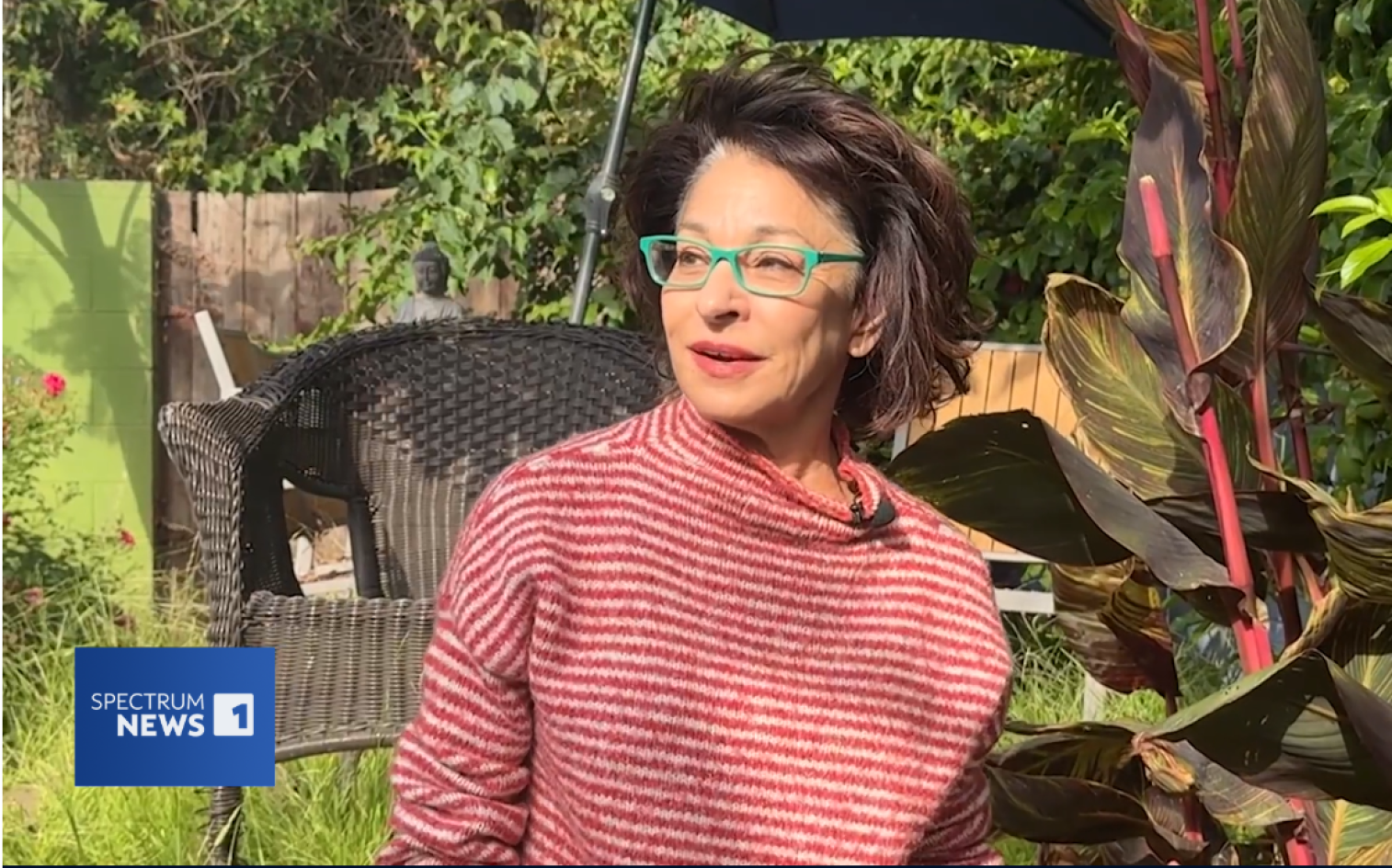By Genevieve Glass
Originally on Spectrum News1
Visit the SpectrumNews1 site to watch the video interview with Lycia.
LOS ANGELES — It’s in her garden that 62-year-old Mar Vista resident Lycia Naff feels most at ease.
“It’s very peaceful and kind of calms my mind… outside of traffic. It’s a little smelly but wonderful,” she said.
Naff says activities like gardening, paired with the support she receives from Venice Family Clinic — where she gets treatment for ADHD and depression — help her feel balanced.
“I’m on a very tight little budget, and it opened me up to realizing I had no insurance,” Naff said.”Then I found Medi-Cal through Venice Family Clinic. I didn’t even think I was qualified for any insurance. [There,] nobody’s given up on me. And when you’re poor, sometimes they do.”
But that lifeline could soon be threatened. Naff is one of millions of Californians who may be affected by the Republican-backed tax and spending bill that rolls back Medicaid expansion under the Affordable Care Act.
The bill includes stricter eligibility requirements for Medicaid, including proof of work and more frequent documentation.
Dr. Mitesh Popat, CEO of Venice Family Clinic, says the changes could deeply impact the 45,000 patients they serve across westside Los Angeles, Inglewood and the South Bay.
“We know people with behavioral health needs are often the most vulnerable of the vulnerable,” he said. “If this passes, they may not get the care they need.”
California could lose billions in federal funding. Political analyst Dan Schnur says as many as 3.4 million Medi-Cal enrollees could be affected.
“Because the bill would require individuals to work a certain number of hours each month and renew their documentation more frequently… projections are that millions could lose access to this coverage,” Schnur said.
Supporters of the bill argue it’s not a cut, but a shift in focus.
“If they’re on Medicaid, they’re not going to be cut off,” said U.S. Rep. Jim Jordan. “The argument we’re hearing from the left is we’re kicking people off. That’s just not the case. We’re saying if you’re on and you’re able-bodied, you should work. The families I represent, I want to make sure their taxes don’t go up. The hardworking people I get the privilege of serving… this bill does that.”
With her mental health in check, Naff now hands out care packages to homeless seniors on Skid Row in her free time. She says she doesn’t know how she’d cope if her support system vanished.
“I don’t want to go backwards,” she said. “I don’t know if there would be support and that that wouldn’t be too good. ”
For Naff, and millions like her, the debate isn’t just about policy. It’s about what happens if the safety net no longer holds.
